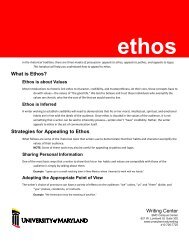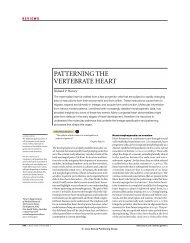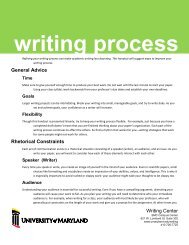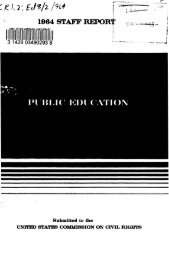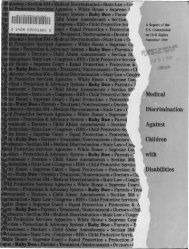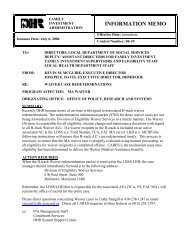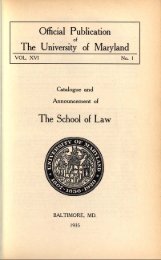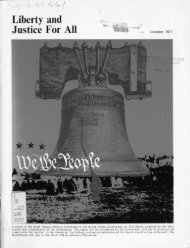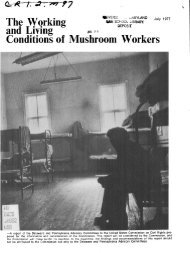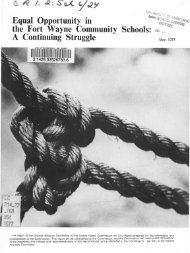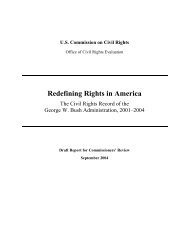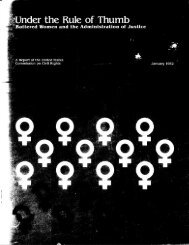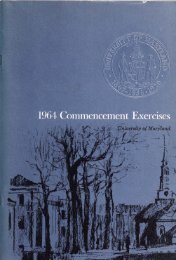Field Manual for 2013-2014 - University of Maryland School of ...
Field Manual for 2013-2014 - University of Maryland School of ...
Field Manual for 2013-2014 - University of Maryland School of ...
You also want an ePaper? Increase the reach of your titles
YUMPU automatically turns print PDFs into web optimized ePapers that Google loves.
c. The differential use <strong>of</strong> language by different client populations.<br />
G. Knowledge <strong>of</strong> the pr<strong>of</strong>essional role.<br />
* Self-awareness<br />
1. Recognizes the importance <strong>of</strong> self-awareness in work with both clients and colleagues.<br />
2. Recognizes the reciprocal nature <strong>of</strong> the clinical transaction--which both student and client influence<br />
and are influenced by each other.<br />
3. Recognizes how both student and client participate in promoting or hindering the transaction.<br />
4. Identifies the impact <strong>of</strong> culture, gender, race, and age, upon clinician-client transactions.<br />
* The meaning <strong>of</strong> pr<strong>of</strong>essional and ethical relationships<br />
1. Understands that clarity <strong>of</strong> purpose is essential to the helping relationship.<br />
2. Recognizes that giving and receiving help can hold a range <strong>of</strong> meanings <strong>for</strong> oneself and one’s clients.<br />
3. Understands that relationships must con<strong>for</strong>m to the Code <strong>of</strong> Ethics.<br />
* The range <strong>of</strong> pr<strong>of</strong>essional roles and relationships<br />
1. Identifies the different pr<strong>of</strong>essional roles and relationships that student-worker has with clients,<br />
colleagues, instructor, staff, etc.<br />
2. Identifies different roles assumed by the social worker, such as broker, advocate, mediator, and<br />
counselor.<br />
H. Elaborate the ways in which individuals’ diverse characteristics (e.g. social status, race, ethnicity, age,<br />
sexual orientation, spirituality, and health status) impact their abilities to access services and affect client<br />
transactions.<br />
I. Develop knowledge <strong>of</strong> evidence-based interventions.<br />
II. SKILL OBJECTIVES<br />
A. Ability to implement the role demands <strong>of</strong> an Advanced clinical student.<br />
1. Carries out task assignments responsibly, effectively, and promptly.<br />
2. Complies with agency work routines.<br />
3. Takes initiative in setting one’s own work priorities and in organizing one’s time.<br />
4. Identifies one’s own work rhythms and assesses one’s own productivity.<br />
5. Takes initiative in using instructional conferences <strong>for</strong> focused learning (i.e., using agenda, preparing<br />
questions, self-assessment).<br />
B. Ability to engage clients in a pr<strong>of</strong>essional relationship.<br />
1. Communicates one’s purpose in the helping relationship.<br />
2. Communicates one’s willingness and confidence as a helper.<br />
C. Ability to assess the request and need <strong>for</strong> help.<br />
1. Enables clients to clarify their purposes in seeking help.<br />
2. Enables clients to share relevant in<strong>for</strong>mation and to request needed in<strong>for</strong>mation.<br />
3. Enables the client to know the steps involved in receiving help: what can be<br />
expected <strong>of</strong> the worker, the agency, and the client.<br />
4. Identifies the client’s need <strong>for</strong> environmental supports and explains the agency’s capacity to provide<br />
these supports.<br />
D. Ability to judge the degree <strong>of</strong> urgency in the client’s request <strong>for</strong> service.<br />
62



